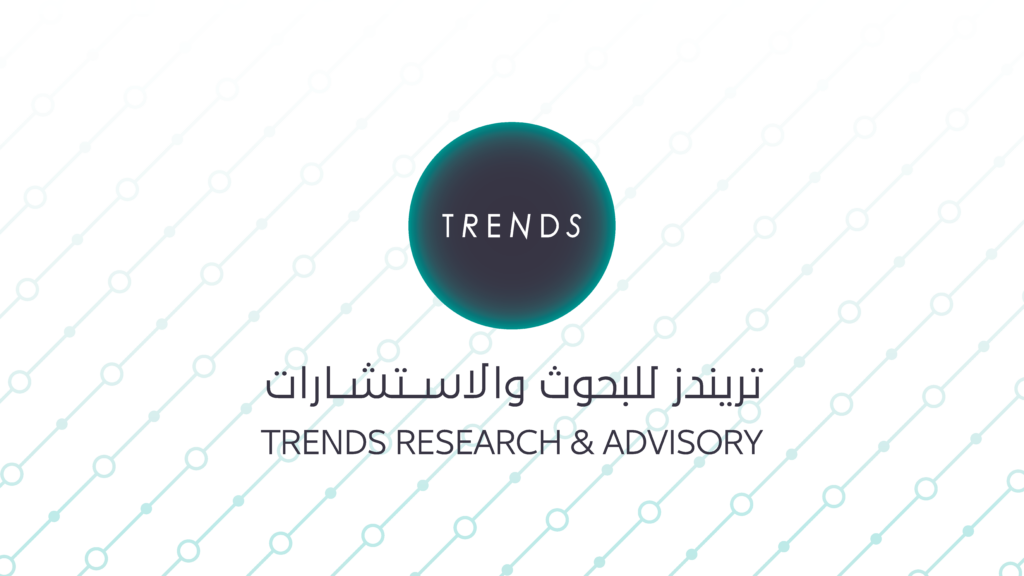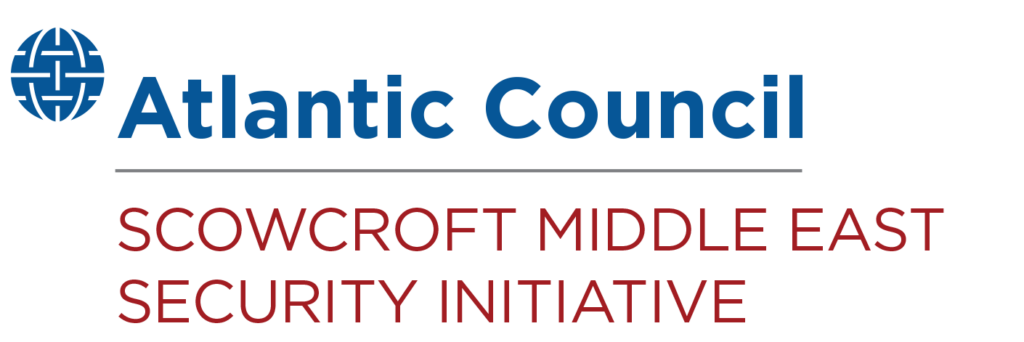TRENDS – Atlantic Council 3rd annual conference on sustainable security: The soft and hard implications of climate action
TRENDS Research and Advisory and the Atlantic Council’s Scowcroft Middle East Security Initiative hosted a two-day conference on “Sustainable security: The soft and hard implications of climate action,” streamed from the Green Zone at COP28.
This year’s conference on sustainable security explored how climate change is shaping the global orders of conflict and finance—all to elicit insights from practitioners and experts from the region and beyond to formulate recommendations for policymakers.
Day 1 was opened by Dr. Adnan Shihab-Eldin, senior visiting research fellow at the Oxford Institute for Energy, and member of the Board of Directors of Kearney Energy Transition Institute (Nederland) and Gulf Bank, as well as former Director General of the Kuwait Foundation for the Advancement of Sciences (2011-2021) and former Acting Secretary General and Director of Research at OPEC.
Day 2 was opened by Anne Witkowsky, Assistant Secretary for the Bureau of Conflict and Stabilization Operations for the United Stated Department of State, formerly serving as Deputy Assistant Secretary of Defense for Stability and Humanitarian Affairs (2014-2016).
Livestreams
DAY 1 – December 4, 2023
DAY 2 – December 5, 2023
Topics discussed
Topic one
Over two days, the conference covered five topics. The first topic, “political and strategic issues challenging international climate action,” addressed how geopolitical competition and transnational cooperation over resources are often at odds within the domestic priorities of nations, and by extension international forums:
- How Great Power Competition shapes the energy transition – Erin Sikorsky, Director of the Center for Climate and Security and the International Military Council on Climate and Security
- COP 28, COP 27’s loss and damage fund, and COP15’s climate finance to date – Osama Al Gohary, Assistant to the Prime Minister of Egypt and IDSC Chairman
- The UAE’s role in unifying and mobilizing international efforts aimed at dealing with climate change – Ahmed Ali Murad, Associate Provost for Research, UAE University
Topic two
The second topic, “The effects of climate change on political conflict,” discussed how the increasing stress of extreme climate conditions directly amplifies existing tensions over resources both domestically and across land and maritime borders:
- Climate change and supply chain competition – Francis R. Fannon, nonresident senior fellow with the Atlantic Council’s Global Energy Center; managing director of Fannon Global Advisors; former Assistant Secretary of State for Energy Resources
- The impact of climate change on existing and future transboundary water issues – Sherri Goodman, Chair of the Board, Secretary General, International Military Council on Climate & Security
- Ecological threats and the potential for conflict – Serge Stroobants, Director Europe & MENA at the Institute for Economics and Peace
Topic three
The third topic, “How climate change shapes the nature of security,” illuminated how a changing environment naturally shapes the theatre of security and warfare:
- How the US addresses coastal resilience, rising sea-levels, and their impact on naval forces in the context of climate change and national security – Meredith Berger, Assistant Secretary of the Navy for Energy, Installations & Environment
- The nexus of conflict, humanitarian response and climate hazards – Elsa Barron, Research Fellow at the Center for Climate and Security (CCS); Co-Chair of the Young Professionals Interest Group at the Environmental Peacebuilding Association
- UAE perspective on climate change and security – Dr. Khawla Al Hattawi, Assistant Professor, Rabdan Academy
Topic four
The fourth, “Green economy and the future of climate-financing,” explained interventions and metrics that help bridge the climate-finance gap and reach economies of scale for renewable energy:
- Policies to encourage green finance – Ariel Ezrahi, nonresident senior fellow with the Atlantic Council’s Middle East Programs; director of climate strategy at NewVest
- Supply chains in the new climate economy, decarbonization and the resilience challenge – Stephen Scalet, Scientific Advisor, Trends Research & Advisory
- Green investment and the future climate economy – May Alhajeri, Strategic Partnerships Officer at Abu Dhabi Investment Office, and Former Youth Delegate to the UN
Topic five
The fifth topic, “The energy transition and net zero,” contextualized how public and private institutions are moving to meet global climate goals:
- How does US security perceive the challenges and opportunities connected to the energy transition – Iris Ferguson, Deputy Assistant Secretary of Defense for Arctic and Global Resilience
- How is the US partnering with other entities to advance and capitalize on the energy transition through energy efficiency and low-carbon technologies – Dr. Ravi I. Chaudhary, Assistant Secretary of the Air Force for Energy, Installations, and Environment
- The clean energy transition in the private sector and government entities, and the road to Net Zero 2050 – Faisal Ali Rashid PMP, Senior Director, Demand Side Management, The Dubai Supreme Council of Energy, Chairman, Advancing Net Zero Volunteering Team
IN PARTNERSHIP WITH


The Scowcroft Middle East Security Initiative (SMESI) provides policymakers fresh insights into core US national security interests by leveraging its expertise, networks, and on-the-ground programs to develop unique and holistic assessments on the future of the most pressing strategic, political, and security challenges and opportunities in the Middle East.
Image: Participants walk on the allies of conference venue, Blue Zone during the COP28, UN Climate Change Conference, held by UNFCCC in Dubai Exhibition Center, United Arab Emirates on December 6, 2023. COP28, running from November 30 to December 12 focuses on particular nations' decarbonisation goals. The Conference in Dubai focuses also on the most vulnerable communities and Loss and Damage (Photo by Dominika Zarzycka/NurPhoto)NO USE FRANCE
Follow the conversation on X, formerly known as Twitter, with @ACMideast and @AtlanticCouncil using #ACTrends